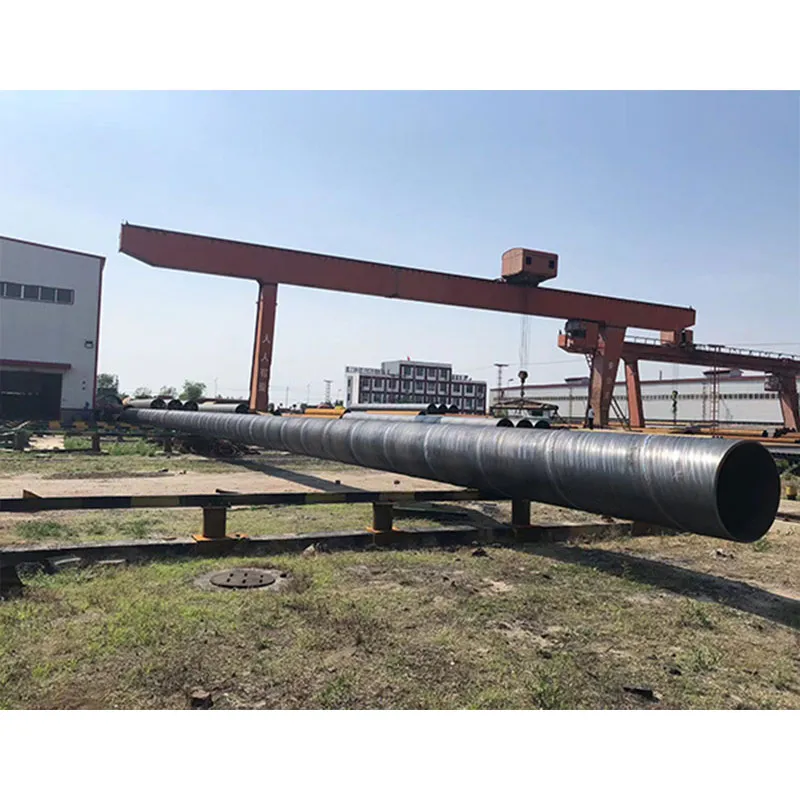Choosing Between Black Steel Pipes and Galvanized Steel Pipes: Key Considerations
2024-10-26
When it comes to plumbing, structural, or gas line projects, choosing the right type of steel pipe is crucial to ensure durability, safety, and efficiency. Black steel pipes and galvanized steel pipes are two common options, each with its own distinct characteristics. While they may look similar, the applications, benefits, and drawbacks of each differ significantly. Let’s explore the key considerations for selecting between black steel and galvanized steel pipes to help you make an informed choice for your next project.
1. Composition and Coating Differences
The fundamental difference between black steel and galvanized steel pipes lies in their coating:
- Black Steel Pipes: These pipes are made from uncoated steel, giving them their characteristic dark, black finish. They lack a protective zinc coating, making them more vulnerable to corrosion in certain environments.
- Galvanized Steel Pipes: Galvanized pipes are coated with a layer of zinc, which provides extra protection against corrosion and rust. This coating is applied through a galvanization process, resulting in a silver or grayish finish.
This difference in coating directly impacts where each type of pipe should be used. Black steel is often used in gas lines, while galvanized steel is commonly found in water supply lines due to its resistance to corrosion.
2. Corrosion Resistance and Durability
Corrosion resistance is a major factor in determining the lifespan of a pipe:
- Black Steel Pipes: Without a protective coating, black steel is prone to rust and corrosion, especially in wet or humid environments. Therefore, they are better suited for indoor applications and gas lines where moisture exposure is minimal.
- Galvanized Steel Pipes: Thanks to the zinc coating, galvanized pipes offer excellent corrosion resistance, making them ideal for outdoor and water supply applications. However, even galvanized pipes can corrode over time, particularly when exposed to saltwater or acidic water, which can wear down the zinc coating.
In cases where exposure to moisture is expected, galvanized pipes typically offer a longer lifespan, making them a better choice for projects involving water transportation or outdoor installations.
3. Application and Usage
Understanding the specific applications where each type of pipe excels is essential:
- Black Steel Pipes: These pipes are commonly used in gas lines and fire sprinkler systems because they can handle the pressure of gas flow and are resistant to the risks associated with gas leakage. Black steel is also used in construction for structural applications such as fence posts or support beams due to its durability.
- Galvanized Steel Pipes: Galvanized pipes are commonly used in plumbing for water transportation, including residential water supply lines, as well as in outdoor applications. The zinc coating provides a barrier against rust, which is essential for maintaining water quality over time.
When selecting between black and galvanized pipes, it’s important to match the material to the application. Black steel pipes excel in non-water, gas-related projects, while galvanized pipes are better for water-based applications or areas exposed to outdoor elements.
4. Cost Considerations
Budget is another important factor when choosing between black steel and galvanized steel:
- Black Steel Pipes: These pipes are generally more affordable due to the lack of a zinc coating and lower production costs. If the project does not involve water exposure or long-term outdoor use, black steel can be a cost-effective choice.
- Galvanized Steel Pipes: Galvanization adds a layer of zinc, making these pipes more expensive than black steel. However, the additional cost can be justified for projects requiring corrosion resistance and extended longevity, especially in outdoor or water transport applications.
While galvanized steel pipes are more costly upfront, they offer potential savings by reducing maintenance and replacement needs over time, particularly for projects exposed to moisture.
5. Installation and Maintenance Requirements
Installation and maintenance needs can vary between the two types of pipes:
- Black Steel Pipes: These pipes are easier to install in gas line applications, requiring less preparation since they don’t have a coating that could wear off. Maintenance is minimal in gas lines, but they should be inspected periodically if exposed to potential rusting conditions.
- Galvanized Steel Pipes: Installing galvanized pipes is more complex, as care is needed to avoid damaging the zinc coating, which could lead to rust. Additionally, cutting galvanized pipes can release zinc particles, so proper precautions are required. Over time, the zinc coating may degrade, particularly in acidic or saltwater environments, necessitating replacement when rusting becomes evident.
For water lines or applications where durability is paramount, the extra maintenance required for galvanized pipes is often worth the investment. However, black steel pipes offer a simpler, low-maintenance option for non-corrosive environments.
6. Environmental Impact and Safety
Both types of pipes have implications for environmental impact and safety:
- Black Steel Pipes: Black steel is generally safe for transporting gases and certain other materials, but it is not suitable for drinking water due to potential rust and contamination. Since it lacks a coating, it is often considered more environmentally friendly, with fewer chemical concerns.
- Galvanized Steel Pipes: The galvanization process adds environmental and health considerations, as zinc particles can potentially enter the water supply if the coating wears down. For this reason, galvanized pipes are less common in new residential plumbing projects where health and water quality standards are a priority.
If environmental and safety concerns are top of mind, black steel may be a safer choice for gas lines, while galvanized steel is generally suitable for certain non-potable water applications.
Selecting between black steel and galvanized steel pipes requires careful consideration of factors such as corrosion resistance, application, cost, maintenance, and environmental impact. By evaluating the unique benefits and limitations of each pipe type, you can make an informed decision that aligns with the demands of your specific project. Black steel pipes provide a durable, cost-effective solution for gas lines and structural applications, while galvanized steel pipes offer the corrosion resistance and longevity needed for water-based and outdoor projects.



